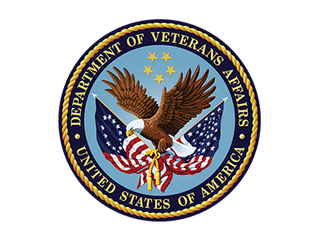Bad News: RSV Is Spreading Very Rapidly - But Here’s The Good News: Hospitals Are Not Impacted

The Respiratory Syncytial Virus (RSV) has been spreading rapidly throughout the country - especially in children - and there doesn’t seem like an end in sight.
While there are certainly major concerns for the health and well-being for all of our children, the good news is that hospitals are not seeing a huge impact on the care for patients, or their ability to house new patients as a result of the virus.
Even though much of the world has simply tried to put the COVID-19 pandemic behind us, there are still plenty of people who are being hospitalized on a daily basis and the news that RSV is not adding to the dilemma is positive. This doesn’t mean, however, there shouldn’t be steps taken by the government (either local, state, or federal) to help prevent the spread of RSV.
CLICK HERE FOR ORIGINAL ARTICLE
In an effort to slow the spread of a respiratory virus in children known as RSV, or respiratory syncytial virus, the Los Angeles County Board of Supervisors on Tuesday, Nov. 1, asked its twin health departments to coordinate education and prevention efforts with schools and parents of young children.
The supervisors ordered the L.A. County Department of Public Health to work with the Los Angeles County Office of Education (LACOE) and community groups to inform parents and families about risks associated with RSV, which is most dangerous in infants and young children.
While anyone can contract RSV, older children and adults have only mild symptoms such as runny noses and coughs. However, infants, and mostly children from infancy to age 4, as well as adults over 65, are at higher risk for more serious complications.
The action came on the heels of a declaration of health emergency and an emergency proclamation issued by the Orange County health officer also in response to the spread of RSV. RSV has been the source of “record numbers of pediatric hospitalizations and daily emergency room visits,” Orange County officials said Tuesday.
Health officials in L.A. County reported an increase in children with fevers and flu-like symptoms at hospitals in L.A. County but said the uptick was not impacting hospitals. “At this time we are not seeing a major spike in pediatric bed utilization,” Dr. Muntu Davis, the county’s health officer, told the Board of Supervisors.
Dr. Rishma Chand, Pediatric Intensivist with Dignity Health Northridge Hospital Friday, October 21, 2022. Chand says they are seeing an uptick in the volume of patients hospitalized with respiratory syncytial virus in children. (Photo by David Crane, Los Angeles Daily News/SCNG)
Health officials are concerned that the rise in flu and RSV cases could combine with a potential spike in COVID-19 cases during and after the holidays. This triple threat could overload the hospitals and emergency rooms in county and private facilities.
“There is concern about stress on our healthcare system with anticipated increases in COVID and influenza cases this fall while RSV is increasing,” read the motion approved by supervisors on a 5-0 vote.
The county DPH was ordered to work with the county’s Department of Health Services to inventory RSV cases in county hospitals and private hospitals to determine if the case loads are jamming up pediatric units. The twin agencies will report back to the supervisors in two months.
“We are seeing an increase of young kids in hospitals. But it is not affecting pediatric intensive care units,” said Dr. Christina Ghaly, director of the county’s Department of Health Services.
Supervisor Kathryn Barger said, “Children’s Hospital L.A. said they are stressed to capacity with pediatric cases.”
In Los Angeles County, the positivity rate for RSV tests has nearly doubled over the last three weeks, the county reported. Davis reported RSV cases in L.A. County began increasing in September, with 23% of suspected specimens coming back positive. This percentage exceeds the peak for RSV cases in 2019, 2020 and 2021.
“We know RSV activity is unusually high for this time of the year and it does warrant precautions,” Davis said.
To ward off RSV, parents and their children should get vaccinated for flu and should also get the bivalent booster for COVID-19, which includes protection against the Omicron variant, the most commonly spread form of coronavirus, Davis said. These will also help protect against RSV, Davis said.
Washing hands thoroughly and often can stop the spread of RSV, Davis said. County health officials recommended wearing a mask around others, especially in crowded indoor places. “A well-fitting, high-filtration mask will provide protection and can even prevent exposure,” Davis said.
Parents should have their children checked by a doctor if they experience difficulty breathing, persistent chest or stomach pain, or significant vomiting. Babies need care if they’re experiencing a fever of 104 degrees, and/or have bluish discoloration of the skin and reduced urination. A symptom in an infant could be as mild as irritability or not wanting to be held, the county health department reported.
Nationwide, in children under age 5, RSV leads to 58,000 hospitalizations and about 500 deaths yearly. For adults 65 and older, RSV causes 177,000 hospitalizations and about 14,000 deaths yearly.
Hospitals in the Northeast and South have been inundated with pediatric patients. Connecticut Children’s Hospital sought the help of the National Guard and the Federal Emergency Management Agency (FEMA) to help expand bed capacity, according to the L.A. County staff report.






